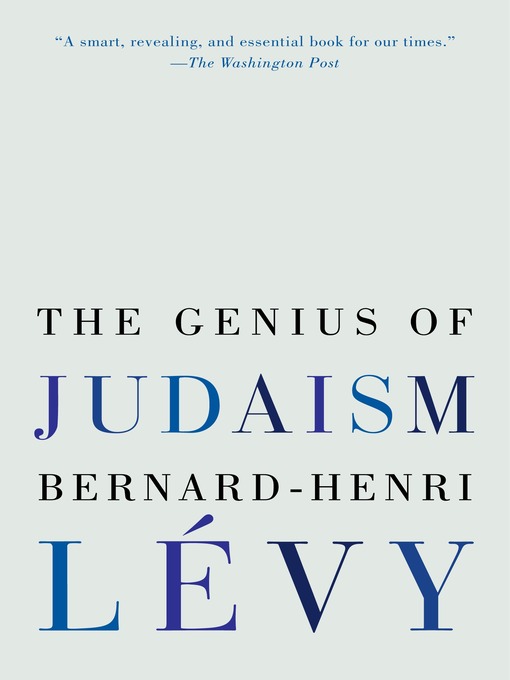
The Genius of Judaism
کتاب های مرتبط
- اطلاعات
- نقد و بررسی
- دیدگاه کاربران
نقد و بررسی

November 14, 2016
Lévy (Left in Dark Times), a prominent French journalist and politically engaged philosopher, turns his observations inward here, pondering the teachings of Judaism and the role they have played in contemporary European history as well as in his own life and intellectual inquiry. Lévy produces some gems of fine prose and incisive thinking—his musings on the meaning of the story of Jonah and the relevance of symbolic Ninevahs in our time are both original and poetic—but the book’s tone is uneven, shifting too frequently between French history, from Charlemagne to Proust, and his own history, citing his own contemporaries with whom a reader may be less familiar. An overall weakness, in fact, is the absence of context; for a reader without prior exposure to Lévy’s work, much of the prose reads as unshared allusions and strong assertions without evidence, which distract from his main argument around the importance of Jewish thought and reducing anti-Semitism. For those already interested in Lévy’s work, however, this will be a welcome addition to his oeuvre, especially his personal reflections and opinions on present-day politics.

December 1, 2016
A memoir and philosophical reflection on the renewed urgency to study the Jewish tomes.With a nod to Chateaubriand's Genius of Christianity, which passionately defended the faith against the critics of the French Enlightenment, Levy (American Vertigo: Traveling America in the Footsteps of Tocqueville, 2006, etc.), the French public intellectual, filmmaker, and controversial author, embarks on an ardent, meandering defense of Judaism as a bulwark against what he sees as the growing forces of barbarism and bigotry. This latest book is a companion of sorts to the author's The Testament of God (1980) as well as a continuing dialogue with like-minded philosophers and influences such as Benny Levy, Alain Finkielkraut, and, especially, Emmanuel Levinas. First, Levy responds to the "oldest form of hate," anti-Semitism, and to the "new guise" of anti-Zionist forces that include Holocaust deniers and revisionists who propound a "competition over victimhood"--e.g., Palestinians and African-Americans vs. Holocaust victims. Within this new guise of anti-Semitism, Levy labels the BDS campaign ("boycott, disinvestment, sanctions") against Israel as "a new form of warfare." Then he looks at the global hot spots where he and other secular Jews have sprung into action against forces of genocide--specifically in Libya and Ukraine, which Levy compares, in an elaborate biblical analogy, to the great city of Nineveh, which fell into decadence and decay and prompted God to command the prophet Jonah to prophesy its destruction. The divine message is that God "chose to view that evil as redeemable," and thus Levy's message is essentially uplifting: that the brilliant scholars of Judaism, the authors of the Talmud, provide elucidation into "the great questions that have stirred humanity since the dawn of time." By turns eloquent and overworked, the author's prose will turn some readers off, but his material is provocative as always. A philosophical celebration of Judaism that wanders but ultimately returns to hope and light.
COPYRIGHT(2016) Kirkus Reviews, ALL RIGHTS RESERVED.

























دیدگاه کاربران